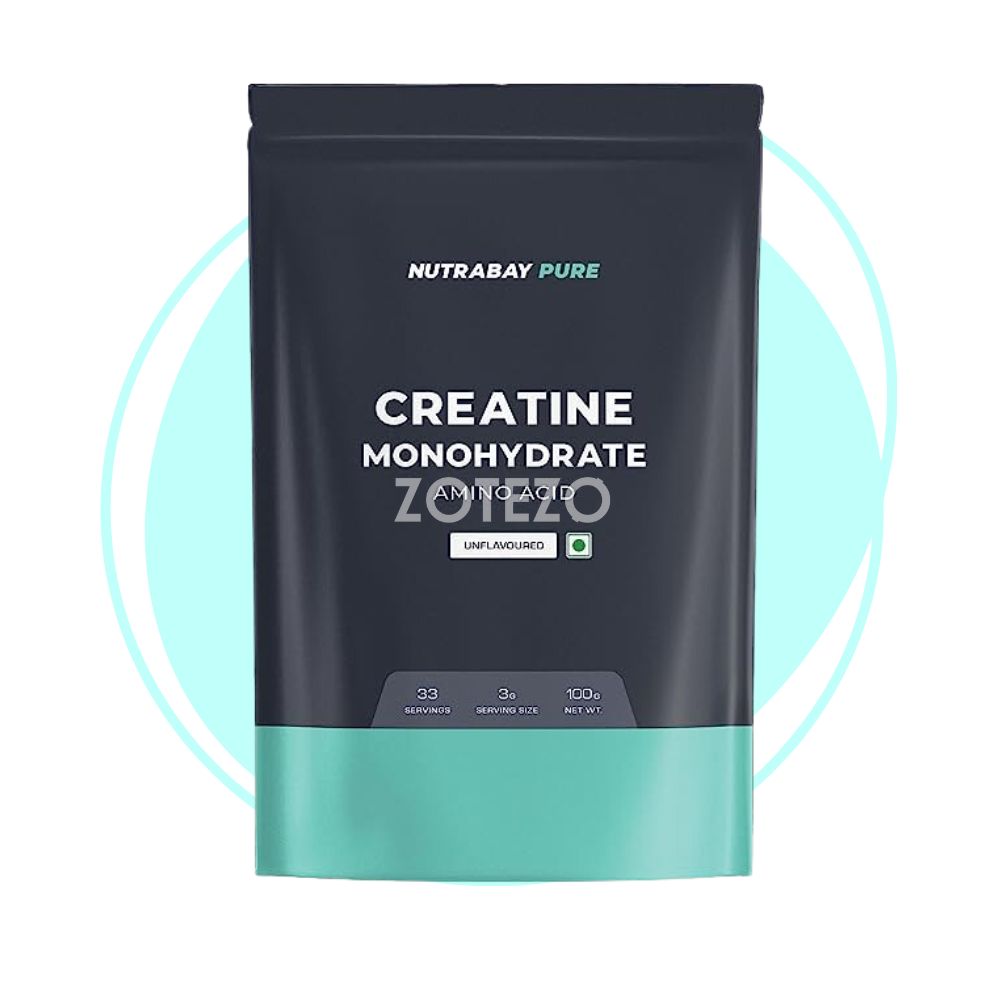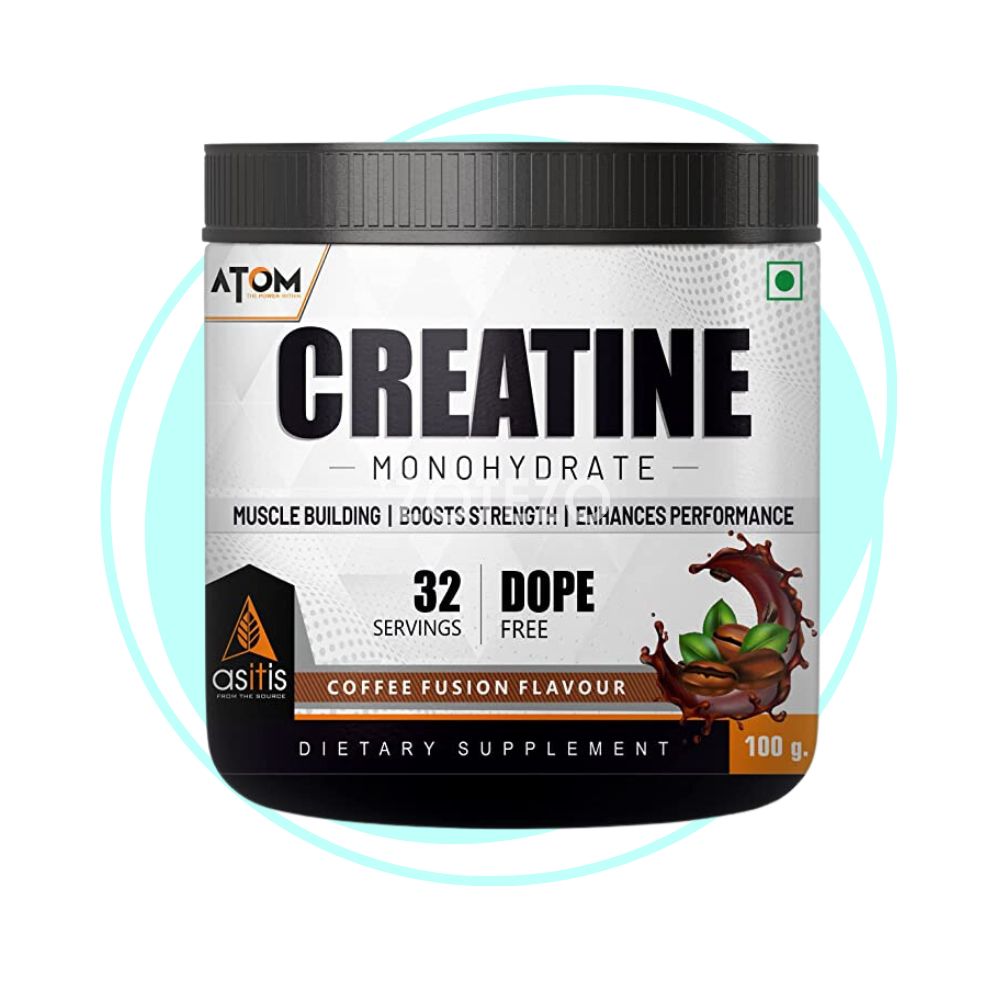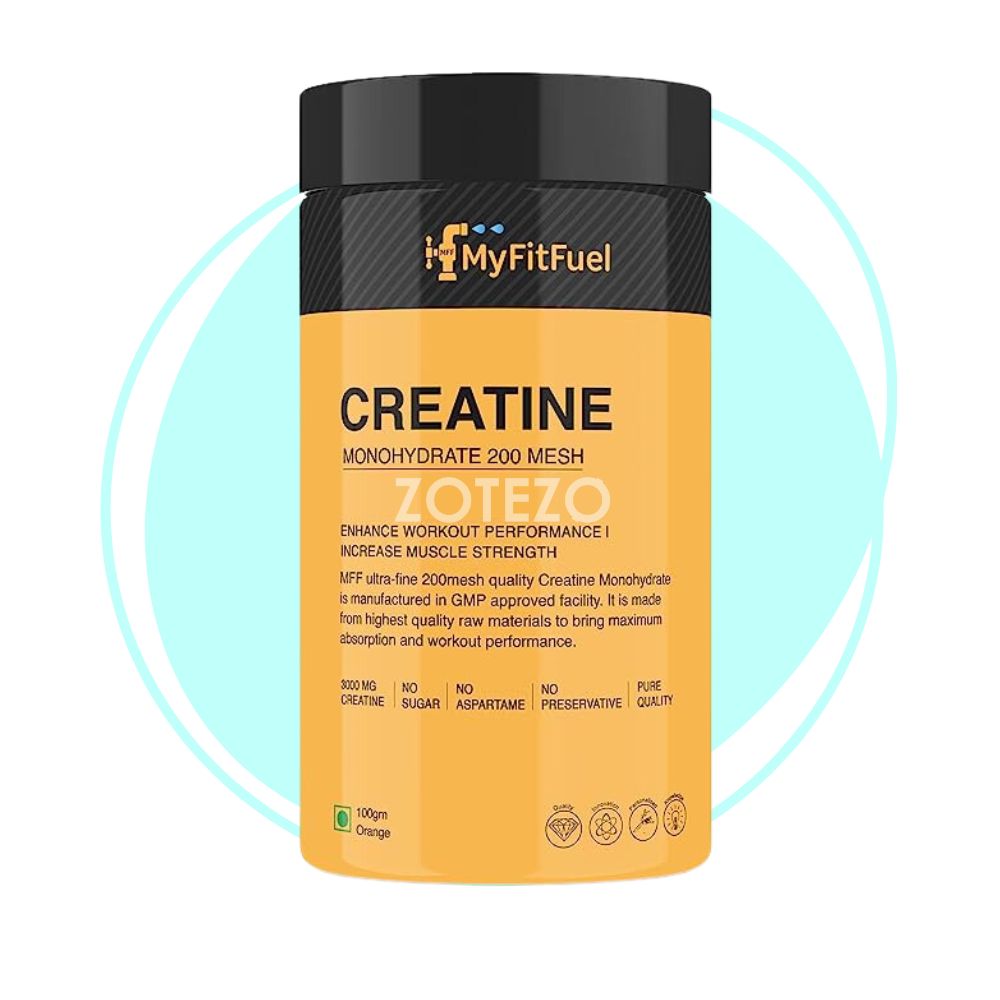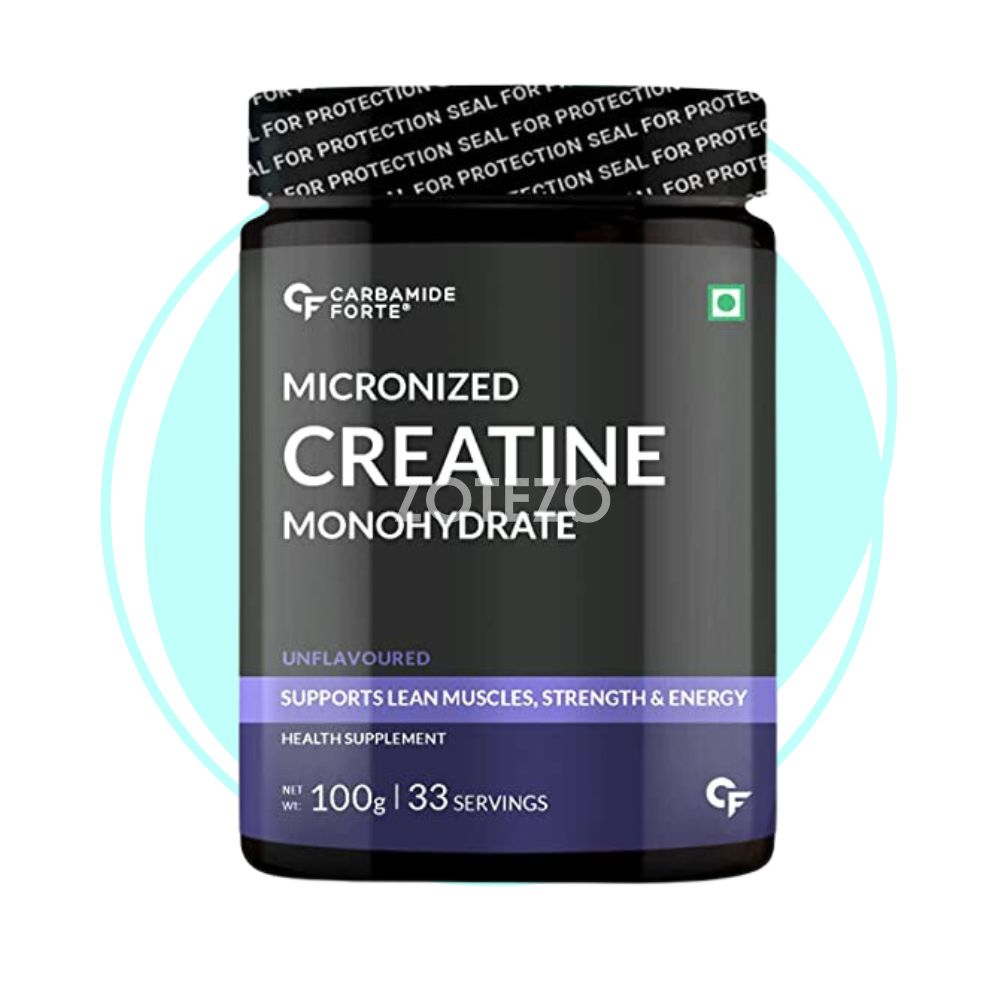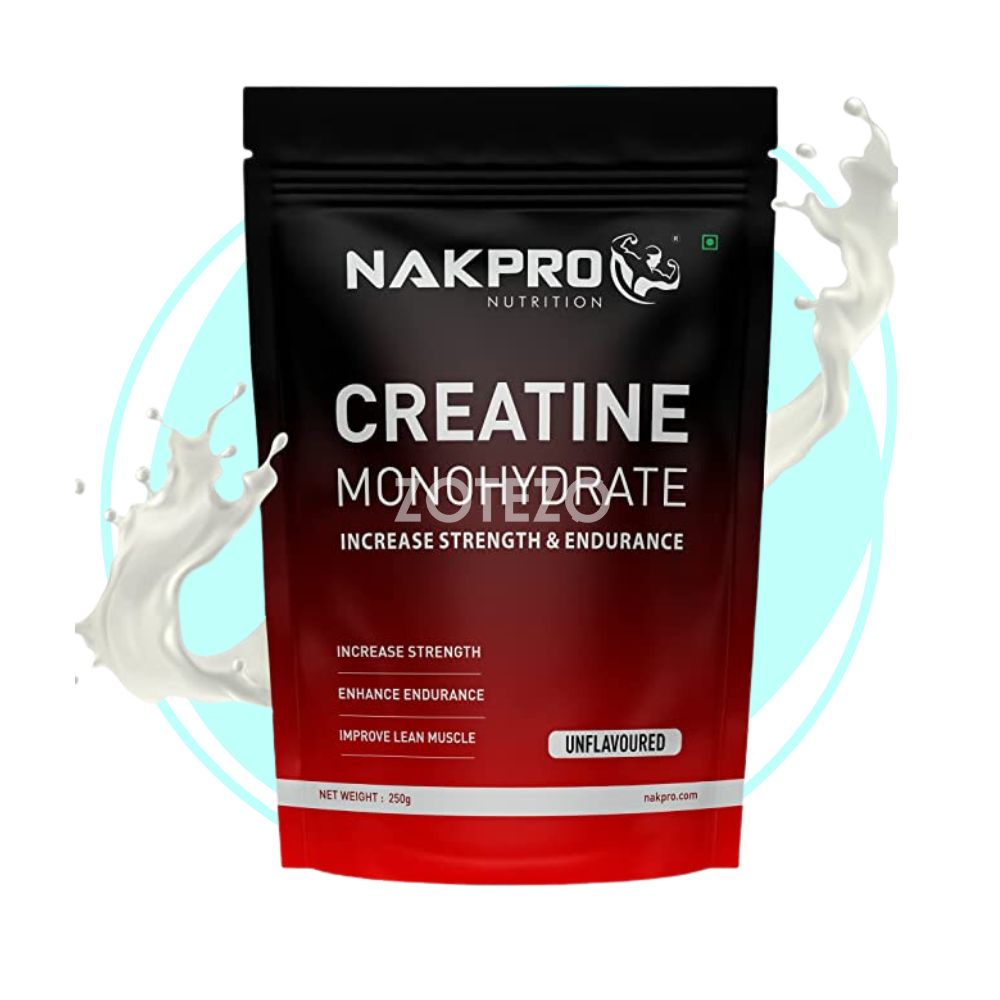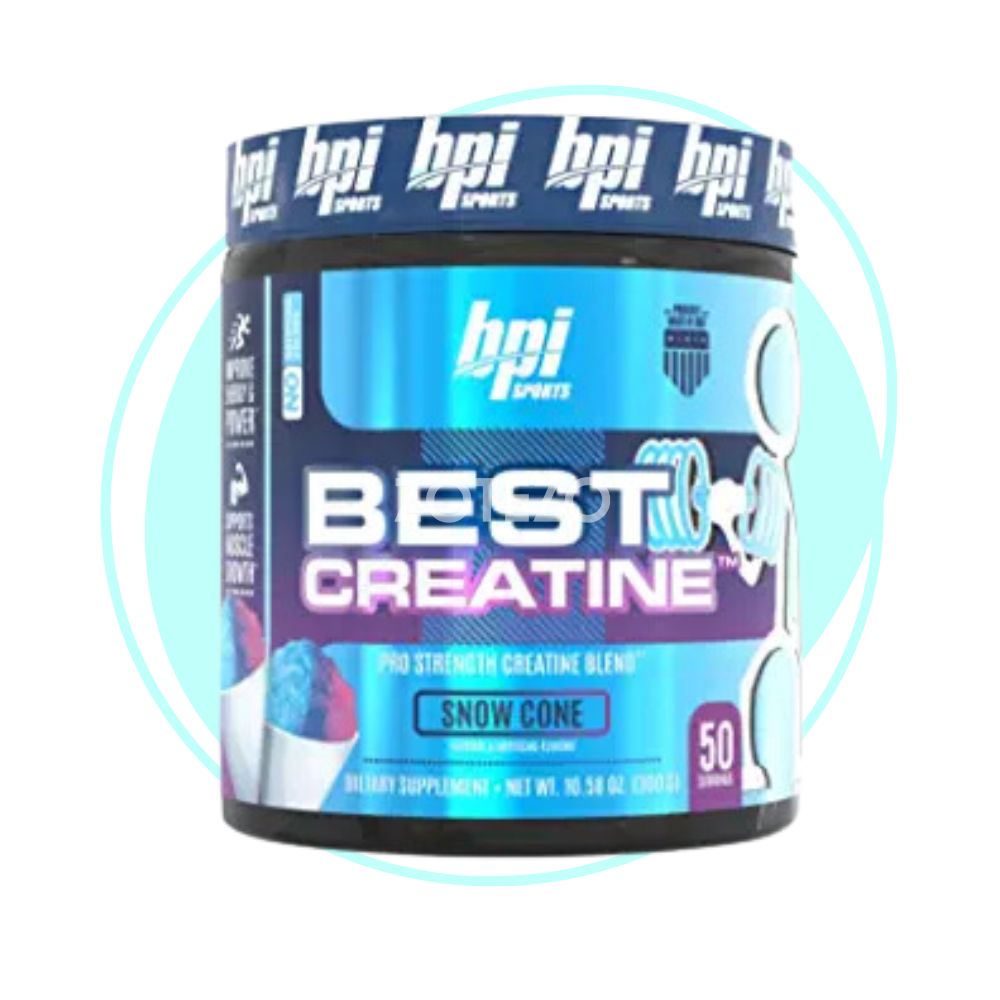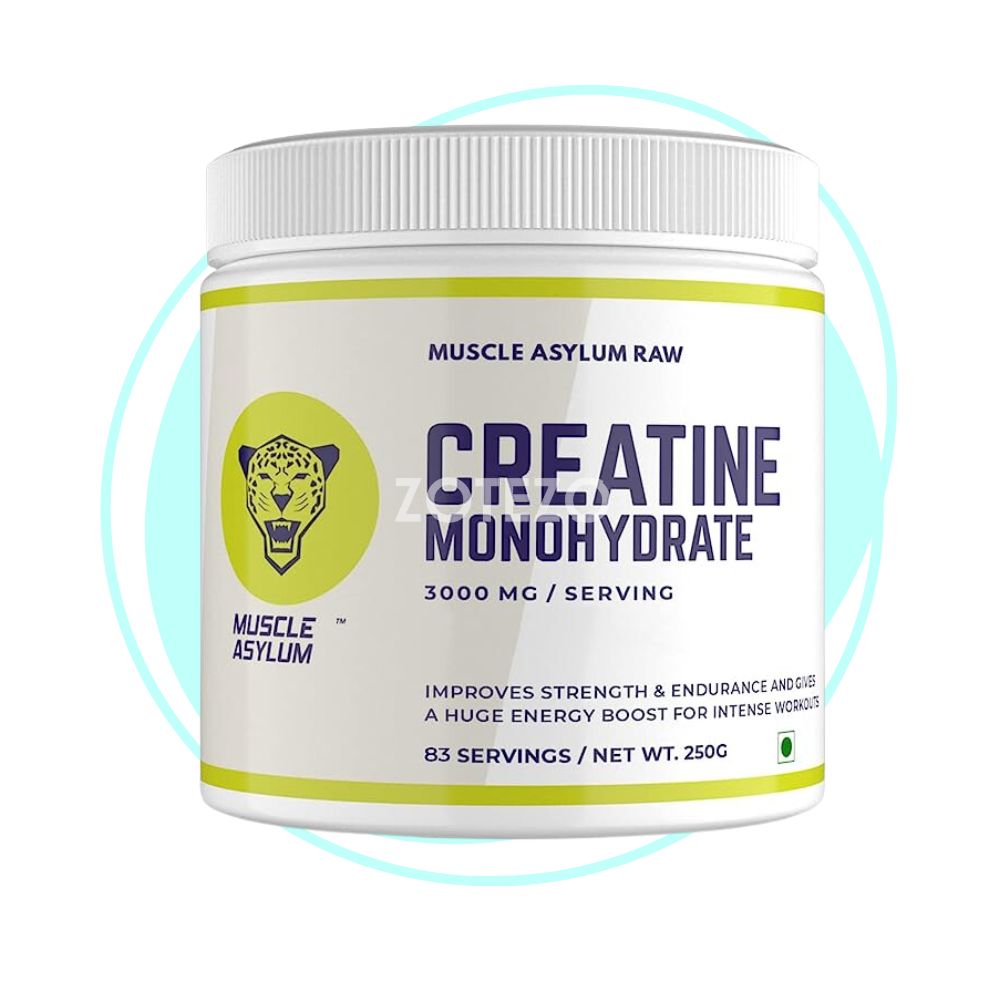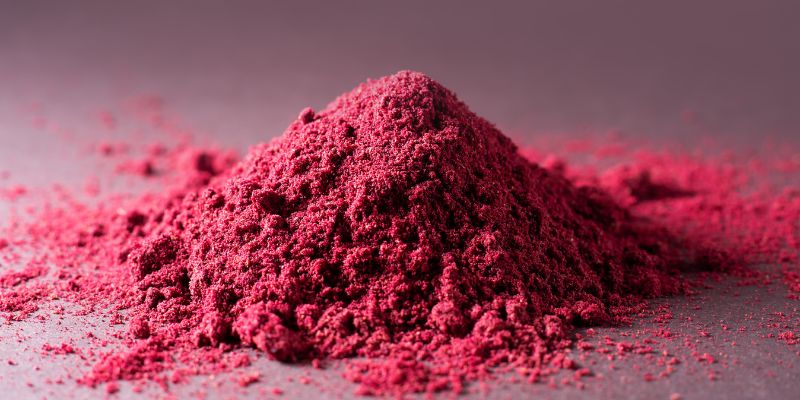Introduction
Whether you’re a dedicated gym-goer, an athlete striving for peak performance, or someone simply looking to boost their overall health, the quest for the best supplements to support your goals is an ongoing journey.
In this article, we delve into a supplement that has stood the test of time and gained immense popularity in the fitness community: Creatine.
Creatine is like the unsung hero of the supplement world, often flying under the radar while delivering incredible benefits. It’s a naturally occurring compound found in small amounts in certain foods, and it plays a pivotal role in providing rapid energy to our muscles during short bursts of intense activity. This energy boost can be a game-changer, allowing you to push through those last few reps or sprint that extra mile.
But with countless creatine products saturating the market, choosing the right one can be a daunting task. Fear not! We’ve got your back. In this comprehensive guide, we’ll break down everything you need to know about creatine, from its various forms and dosages to the science behind its effectiveness. Whether you’re new to creatine or a seasoned user, our aim is to equip you with the knowledge to make an informed decision and help you uncover the best creatine supplement in India for your fitness journey. So, let’s dive in and unlock the power of this remarkable supplement together!

Our pick of the 7 best Creatine of 2024 in India
Zotezo Score | Best Creatine Supplements For Muscle Gain | Lowest Price |
|---|---|---|
|
A |
||
|
A |
||
|
B+ |
||
|
B+ |
||
|
B+ |
||
|
B |
||
|
C+ |
Let's take a deep dive into these 7 best Creatine Supplements in India
Best Overall Creatine Supplements in India
Nutrabay
A
Zotezo review
Nutrabay Pure Micronised Creatine Monohydrate Powder is the overall best creatine supplement that is the perfect pre/post workout supplement for muscle repair and recovery. This ultra-fine powder is formulated to support athletic performance and power and is easily digestible for maximum absorption. Our product is bioavailable and promotes quick muscle gain and strength improvement.
Product details
Benefits of Nutrabay Pure Micronised Creatin...
Best Creatine Supplements For Muscle Gain in India
AS-IT-IS
A
Zotezo review
Get the muscle building results you want with the best creatine supplement for musle gain, AS-IT-IS Nutrition’s ATOM Creatine Monohydrate. Our product comes equipped with a scoop inside and is lab-tested to ensure quality you can trust. Plus, with our heavy-metal tested formula and Dope Free certification, you can feel confident in your purchase. Take your fitness journey to the next level with AS-IT-IS Nutrition.
Product details
Benefits of AS-IT-IS Nutrition ATOM Creatine...
Best Creatine Supplements For Women in India
MyFitFuel
B+
Zotezo review
MyFitFuel Creatine Monohydrate is the best creatine supplement for women. It is a pure and effective supplement that enhances your workout performance and muscle strength. It contains no color or sugar, and is made with 100% transparency in mind. This product is perfect for high-intensity training, helping you build lean muscle and reach your fitness goals.
Product details
Benefits of MyFitFuel Creatine Monohydrate
Best Creatine Supplements For Men in India
Carbamide Forte
B+
Zotezo review
Carbamide Forte Micronised Creatine Monohydrate Powder is the best creatine supplement for men and, a top-notch creatine supplement for lean muscle volumization, strength, and energy. This premium-quality powder has been carefully formulated to support your body’s energy production processes and provide you with the necessary stamina to power through your workouts. Additionally, our product is dope-free, making it a suitable choice for professional athletes looking to enhance their performance without compromising their integrity.
Product details
Benefits of Carbamide Forte Micronised Creat...
Negatives
Best Creatine Supplements For Strength in India
NAKPRO
B+
Zotezo review
NAKPRO MICRONIZED CREATINE MONOHYDRATE is the best creatine supplement for strength. It is designed to help improve muscle endurance and recovery. It is fast dissolving and rapidly absorbed, making it easy to incorporate into your daily routine. Our creatine is also free from toxic substances, ensuring you get the highest quality product possible. With NAKPRO MICRONIZED CREATINE MONOHYDRATE, you can improve your overall performance and increase strength with every workout.
Product details
Benefits of NAKPRO MICRONIZED CREATINE MONOH...
Cons
Best Advanced Creatine Supplements in India
BPI Sports
B
Zotezo review
BPI Sports Best Creatine is the best advanced creatine powder and ultimate solution for anyone looking to amplify their workout performance. With a unique blend of Himalayan Salt and six advanced forms of Creatine, this supplement delivers unparalleled strength, endurance , and pump, without any bloating effect. Whether your goal is to achieve muscle growth or muscle definition , this formula has got you covered. So, fuel up your training with the power of Best Creatine and take your fitness game to the next level. It serves 6g creatine per scoop.
Product details
Benefits of BPI Sports Best Creatine
Drawbacks
Best Creatine Supplements For Monohydrate in India
Muscle Asylum Raw
C+
Zotezo review
Muscle Asylum Micronized Creatine Monohydrate Powder is the best creatine supplement for fatigue reduction. It offers a natural and natural identical flavour to help you stay energized and focused throughout your training sessions. Made with premium ingredients, this supplement is designed to increase lean mass and reduce fatigue, giving you the strength and endurance you need to make progress in your fitness journey.
Product details
Benefits of Muscle Asylum Micronized Creatin...
Weaknesses

The Grand Wellness Awards
Discover excellence in wellness with 'The Grand Wellness Awards' by Zotezo! This prestigious award recognizes the finest wellness brands across 19 countries that prioritize your well-being. From nourishing supplements to rejuvenating self-care products, we honor the best in the industry. Embrace a healthier lifestyle and explore the trusted brands that elevate your wellness journey.
Video
Various Types of Creatine
When it comes to choosing the best creatine supplement for your needs, you’ll quickly realize that not all creatine is created equal. Creatine comes in various forms, each with its unique characteristics and potential benefits. Let’s take a closer look at the different types of creatine you’re likely to encounter on your supplement shopping journey:
1. Creatine Monohydrate:
This is the OG of creatine supplements, and for a good reason. Creatine monohydrate is the most researched and well-established form of creatine. It’s cost-effective and has a solid track record of increasing muscle strength and power. It’s a favorite among athletes and bodybuilders for its effectiveness and minimal side effects.
2. Creatine HCL (Hydrochloride):
If you’re someone who experiences stomach discomfort or bloating with creatine monohydrate, creatine HCL might be worth considering. It’s touted for its improved solubility, which means it can be taken in smaller doses and still deliver results. Some users find it easier on the digestive system.
3. Buffered Creatine:
Buffered creatine is a modified version of creatine monohydrate with an alkaline buffer added. The idea behind it is to reduce the breakdown of creatine into creatinine (a waste product) in the acidic environment of the stomach. This may enhance its absorption and potentially reduce side effects like bloating.
4. Creatine Ethyl Ester:
Creatine ethyl ester was once marketed as a more effective form of creatine due to its supposed enhanced absorption. However, research hasn’t strongly supported these claims, and it may not be the best choice compared to other forms.
5. Micronized Creatine:
Micronized creatine is creatine monohydrate that has undergone a micronization process, resulting in finer particles. This finer texture may improve its mixing ability and dissolve more easily in water, making it convenient for those who prefer mixing their creatine with beverages.
6. Creatine Nitrate:
Creatine nitrate combines creatine with nitric acid, potentially offering the dual benefit of increased creatine uptake and improved vasodilation for enhanced muscle pumps. While it’s gaining popularity, more research is needed to confirm its superiority over traditional forms.
How does creatine work?
Creatine primarily operates by influencing energy metabolism. Adenosine triphosphate (ATP) serves as a crucial energy carrier within cells and stands as the primary fuel source during high-intensity exercises. As cells utilize ATP for energy, it undergoes conversion into adenosine diphosphate (ADP) and adenosine monophosphate (AMP). Creatine takes the form of creatine phosphate (or phosphocreatine) within cells. This compound generously contributes a high-energy phosphate group to ADP, effectively transforming it back into ATP.
Through the augmentation of the overall cellular phosphocreatine reservoir, creatine supplementation expedites the conversion of ADP back into ATP, swiftly restoring cellular energy reserves. This heightened availability of energy fosters enhancements in both strength and power output during physical activities. Notably, the advantageous effects of creatine extend beyond skeletal muscle, impacting various body systems, including the central nervous system.
Decoding Excellence: Our Journey in Testing the Best Creatine Supplements
Embarking on the mission to unearth the best creatine supplements, we undertook a meticulous journey that blended scientific scrutiny with real-world applicability. As dietitian authors, our commitment was clear – to guide you through the diverse landscape of creatine products, ensuring our recommendations are not only rooted in evidence but also align with the varied needs and preferences of individuals seeking optimal athletic performance and overall well-being.

1. Understanding Creatine: The Foundation of Excellence
Before diving into the testing process, a deep understanding of creatine and its role in the body was paramount. Creatine is a naturally occurring compound crucial for energy production, especially during high-intensity activities. As a popular supplement, it’s vital to ensure that the products on our radar effectively deliver creatine to support your fitness goals.
2. Comprehensive Market Research: Navigating the Spectrum
Our journey commenced with an extensive exploration of the market. We delved into the myriad creatine supplements available, considering factors such as creatine monohydrate, micronized creatine, creatine blends, and alternative forms like creatine HCL. The goal was to encompass the diverse array of options, ensuring our testing included products catering to different preferences and objectives.
3. Evaluation Criteria: Quality Beyond Creatine Content
Defining our evaluation criteria was a crucial step in ensuring a thorough and fair assessment. Beyond creatine content, we considered factors such as product purity, additives, mixability, taste (where applicable), and the presence of third-party testing certifications. These criteria were carefully chosen to encapsulate the multifaceted considerations individuals have when selecting a creatine supplement.
4. Lab Testing: Ensuring Purity and Potency
Rigorous lab testing formed the backbone of our assessments. We subjected each creatine supplement to meticulous analyses, verifying the accuracy of labeled creatine content and scrutinizing for potential contaminants. Purity and potency are non-negotiables when it comes to a supplement that plays a vital role in your athletic endeavors, and our lab testing aimed to ensure you get what you pay for.
5. Micronization Matters: Enhancing Absorption
Micronization, the process of reducing creatine particles to smaller sizes, can impact the absorption and solubility of the supplement. We paid special attention to the micronization process in our evaluations, recognizing its potential to enhance the bioavailability of creatine and improve its efficacy in the body.
6. Real-world Application: Testing in Action
Our commitment to authenticity led us beyond the confines of laboratories into real-world scenarios. We enlisted the help of athletes, fitness enthusiasts, and individuals with diverse training backgrounds to incorporate creatine supplements into their routines. This field testing provided insights into how each product integrates into daily life, addressing factors like taste, mixability, and overall user experience.
7. Considering Different Forms: From Monohydrate to Specialized Blends
Creatine monohydrate has long been the gold standard, but the market offers a spectrum of options, including creatine hydrochloride (HCL), ethyl ester, and buffered creatine. We considered the benefits and potential drawbacks of different forms, recognizing that individual responses to creatine can vary. Our evaluations aimed to provide recommendations tailored to diverse preferences and tolerances.
8. Dosage and Loading Protocols: Clear Guidelines
Understanding the optimal dosage and loading protocols for creatine is essential for its effectiveness. We delved into the recommended serving sizes, considering variations in loading phases and maintenance doses. Clear guidelines on usage ensure that our recommendations align with established best practices, helping you derive the maximum benefits from creatine supplementation.
9. Transparency in Labeling: A Non-negotiable
We scrutinized each product’s labeling to ensure transparency regarding creatine content and the inclusion of additional ingredients. Clear labeling not only fosters consumer trust but also assists individuals in making informed choices based on their specific dietary and lifestyle preferences.
10. Ethical Sourcing and Third-party Certifications: A Holistic Approach
In an era where ethical considerations are paramount, we explored the sourcing practices of the brands behind the creatine supplements. Additionally, we sought out third-party certifications such as NSF or Informed-Choice, which indicate a commitment to quality, safety, and adherence to anti-doping regulations. This holistic approach ensures that our recommendations align not only with your health goals but also with your values.
11. Continuous Monitoring: Staying Ahead of the Curve
The world of nutrition and supplementation is dynamic, with formulations and consumer preferences evolving over time. Our commitment to providing up-to-date and relevant information led us to establish a system for continuous monitoring. We stay abreast of new product releases, industry developments, and emerging scientific research to ensure that our recommendations reflect the latest and best in the world of creatine supplements.
Various types and needs for Creatine Supplements
Creatine Supplements come in various types, each catering to different target audiences based on their specific needs and preferences. In this article, we have done extensive research, and reviewed the below mentioned types of Creatine :
By Types of Creatine Supplements
- Monohydrate Creatine Supplements
- Ethyl Ester Creatine Supplements
- Hydrochloride Creatine Supplements
- Buffered Creatine Supplements
- Nitrate Creatine Supplements
- Magnesium Chelate Creatine Supplements
- Micronized Creatine Supplements
By Audience & Needs
- Creatine Supplements For Men
- Creatine Supplements For Women
- Creatine Supplements For Athletes
- Creatine Supplements For Bodybuilders
Our effort is aimed to provide a diverse range of Creatine to ensure that individuals from various backgrounds and wellness goals can find a suitable option to optimize their wellbeing and achieve their desired outcomes.
Tips for choosing the right Creatine for you
Creatine supplements are typically made by synthesizing creatine in a laboratory using a combination of chemicals and enzymes. The most common method of creatine synthesis involves starting with the amino acids glycine, arginine, and methionine. These amino acids are combined through a series of chemical reactions to form creatine.
Synthesizing creatine involves several steps, including fermentation, extraction, purification, and drying. During fermentation, microorganisms are used to convert the amino acids into creatine. The resulting mixture is then extracted and purified using filters and chemical processes to remove impurities and isolate the creatine. Finally, the pure creatine is dried and ground into a fine powder, which can be packaged into capsules, tablets, or powder form for use as a dietary supplement.
When choosing a creatine supplement, there are a few factors to consider to ensure that you select the right product for your needs:
1. Types of Creatine:
When choosing a creatine supplement, the first decision you’ll face is the type of creatine. Here are some popular forms and considerations:
- Creatine Monohydrate: This is the classic and most researched form of creatine. It’s well-established for its muscle-strengthening and muscle-building benefits. Look for high-quality creatine monohydrate from reputable brands.
- Creatine HCL (Hydrochloride): If you have a sensitive stomach and experience digestive discomfort with creatine monohydrate, consider creatine HCL. It’s known for its improved solubility and gentler effect on the gastrointestinal system.
- Buffered Creatine: Buffered creatine aims to provide a more sustained release of creatine, potentially offering consistent benefits over time. It may be a good choice if you’re seeking long-lasting effects.
- Creatine Ethyl Ester: While once marketed as superior for muscle growth, research hasn’t strongly supported these claims. It’s less common now but may still be available from some manufacturers.
- Micronized Creatine: If convenience and mixability are priorities, opt for micronized creatine. Its fine particles dissolve readily in liquids, making it easy to consume.
- Creatine Nitrate: This form combines creatine with nitric acid, potentially improving exercise performance and muscle pumps. However, it’s newer and has limited long-term safety data available.
2. Certification and Quality:
To ensure that you’re getting a high-quality product, look for creatine supplements from reputable brands that follow good manufacturing practices (GMP). GMP-certified supplements undergo rigorous testing and quality control to meet industry standards.
Check for third-party certifications, such as the NSF International Certified for Sport or Informed-Choice certification. These certifications indicate that the product has been tested for contaminants and is free from banned substances, making them a safe choice for athletes.
Additionally, ensure that the creatine supplement you choose is made in a facility that adheres to FDA regulations. While the FDA does not specifically regulate dietary supplements, supplements made in FDA-registered facilities are more likely to meet quality standards.
3. Key Ingredients and Purity:
Read the product label carefully to check for any additional ingredients or additives. Ideally, a creatine supplement should contain only creatine and no fillers or artificial additives.
Look for products with a high level of purity. Creapure® is a well-known brand of creatine monohydrate that is renowned for its purity and quality. Choosing a product with the Creapure® label can give you confidence in its quality.
4. Dosage and Serving Size:
Creatine supplements typically come in powder or capsule form. Pay attention to the recommended serving size and dosage instructions provided by the manufacturer. The standard dosage for creatine monohydrate is usually around 3 to 5 grams per day.
Some products may recommend a loading phase where you consume a higher dose for the first week before transitioning to a maintenance dose. Follow the recommended dosage guidelines to ensure you’re getting the right amount of creatine for your goals.
5. Precautions and Considerations:
While creatine is generally considered safe for most people, there are some precautions to keep in mind:
Medical Conditions: If you have pre-existing medical conditions, particularly kidney or liver issues, consult with a healthcare professional before starting creatine supplementation.
Medications: Creatine may interact with certain medications, such as diuretics. If you’re taking medication, especially for conditions like hypertension or heart-related issues, consult your healthcare provider before adding creatine to your supplement regimen.
Hydration: To prevent potential side effects like muscle cramps or strains, stay well-hydrated when using creatine supplements. Adequate fluid intake is crucial, especially if you’re taking higher doses.
Cycling: Some users prefer to cycle creatine, which means taking it for a set period and then taking a break. Cycling can help prevent your body from becoming reliant on external creatine and maintain your body’s natural creatine production.
Consistency: To experience the full benefits of creatine, consistency is key. Stick to a regular supplementation schedule, and combine it with a balanced diet and appropriate training to maximize results.
6. Cost and Value:
Creatine supplements are generally cost-effective, with creatine monohydrate being one of the most affordable options. When evaluating the cost, consider the serving size and the number of servings per container. Calculate the cost per serving to determine the best value for your budget.
7. Personal Goals and Preferences:
Your choice of creatine supplement should align with your specific fitness goals, dietary preferences, and any sensitivities you may have. Whether you’re an athlete looking to boost performance or someone seeking cognitive benefits, there’s a creatine option tailored to your needs.
Products listed here are carefully reviewed and tested by our expert authors and reviewers. If you buy through links on this page, we may earn a small commission. Here’s our editorial process.
How we reviewed these products
Benefits of using Creatine
Creatine supplements have gained immense popularity in the fitness and sports communities for a good reason. They can be a game-changer in your quest for improved performance, muscle growth, and overall well-being. In this comprehensive guide, we’ll walk you through the benefits of creatine, highlighting the advantages of different types to help you make an informed decision when choosing the best creatine supplement in India for your needs.
1. Increased Muscle Strength and Power:
- Creatine Monohydrate: The classic choice for strength and power gains. Numerous studies have shown that creatine monohydrate can significantly enhance muscle strength and power, making it a top choice for athletes, powerlifters, and bodybuilders. It boosts your body’s capacity to regenerate ATP (adenosine triphosphate), the primary energy currency of our cells, allowing for more intense and longer workouts.
- Creatine HCL: While not as extensively studied as creatine monohydrate, creatine HCL has gained attention for its potential to provide similar strength and power benefits. Some users find it gentler on the stomach, making it a suitable alternative for those who experience digestive discomfort with monohydrate.
2. Enhanced Muscle Growth:
- Creatine Monohydrate: Alongside its strength benefits, creatine monohydrate can also promote muscle growth. It helps increase water content in muscle cells, creating a more anabolic environment for protein synthesis. This leads to muscle hypertrophy, particularly when combined with resistance training.
- Creatine Ethyl Ester: While initially marketed as a superior form of creatine for muscle growth, research hasn’t provided substantial evidence to support this claim. Creatine monohydrate remains the gold standard in this regard.
3. Improved Exercise Performance:
- Buffered Creatine: This form aims to enhance exercise performance by reducing the breakdown of creatine into creatinine in the stomach’s acidic environment. While promising, more research is needed to confirm its superiority over creatine monohydrate.
- Creatine Nitrate: Combining creatine with nitric acid, creatine nitrate may offer the dual benefit of increased creatine uptake and improved vasodilation, potentially leading to enhanced exercise performance and muscle pumps. However, further studies are required to substantiate these claims.
4. Reduced Fatigue and Enhanced Endurance:
Creatine Monohydrate: Creatine’s role in improving endurance is often underestimated. It helps your muscles generate energy more efficiently during high-intensity, short-duration activities. This can translate into reduced fatigue and better performance during activities like sprinting or weightlifting.
5. Potential Cognitive Benefits:
Creatine Monohydrate: Emerging research suggests that creatine may have cognitive benefits beyond physical performance. It has shown promise in improving brain function, memory, and mental clarity. While not a primary reason for using creatine, these potential cognitive advantages are intriguing.
6. Muscle Recovery and Reduced Muscle Damage:
- Micronized Creatine: The finer particles in micronized creatine may improve its solubility and absorption, potentially aiding in muscle recovery. This can be especially beneficial for athletes looking to reduce muscle damage and speed up post-exercise healing.
- Creatine HCL: Some users report reduced muscle soreness and a faster recovery period when using creatine HCL, possibly due to its improved solubility and absorption.
7. Gastrointestinal Comfort:
Creatine HCL: If you’ve experienced digestive discomfort with creatine monohydrate, creatine HCL might be a more comfortable option. Its improved solubility may reduce gastrointestinal side effects like bloating and stomach cramps.
8. Tailored Absorption Rates:
Buffered Creatine: This form aims to provide a more sustained release of creatine, potentially allowing for a more consistent supply of creatine to muscles over time. This could be advantageous for individuals seeking long-lasting benefits.
9. Convenience and Mixability:
Micronized Creatine: With its finer particles, micronized creatine mixes easily with water, making it convenient for those who prefer to drink their creatine supplements. This can be especially useful for maintaining consistent dosages.
10. Potential for Reduced Water Retention:
Creatine HCL and Buffered Creatine: Some users report less water retention with these forms compared to creatine monohydrate. While water retention can be part of creatine’s muscle-building mechanism, individuals aiming to minimize this effect may find these forms appealing.
Side-effects of using Creatine Supplements
While creatine is generally considered safe and well-tolerated, it’s essential to be aware of any potential side effects, especially when considering different types of creatine supplements.
1. Gastrointestinal Distress:
- Creatine Monohydrate: The most common side effect associated with creatine supplementation, particularly in its monohydrate form, is gastrointestinal distress. Some individuals may experience bloating, stomach cramps, or diarrhea. These symptoms are typically mild and can often be alleviated by reducing the dosage or taking creatine with food.
- Creatine HCL: This form is generally gentler on the stomach and may be a more suitable choice for those who experience gastrointestinal discomfort with creatine monohydrate.
2. Water Retention:
- Creatine Monohydrate: One of the mechanisms behind creatine’s muscle-building effects is its ability to increase water content in muscle cells. While this can lead to fuller-looking muscles and improved performance, it may also result in temporary water weight gain. This effect is usually harmless and tends to subside when you stop taking creatine.
- Creatine HCL and Buffered Creatine: Some users report less water retention with these forms compared to creatine monohydrate, making them appealing choices for individuals who wish to minimize this effect.
3. Muscle Cramps and Strains:
Creatine Dehydration: In rare cases, excessive creatine supplementation without adequate fluid intake can lead to dehydration, potentially causing muscle cramps or strains. This underscores the importance of staying well-hydrated when using creatine supplements.
4. Kidney and Liver Function:
Creatine Monohydrate: Creatine has been associated with concerns about kidney and liver function. However, extensive research has not provided conclusive evidence that creatine harms these organs in healthy individuals. If you have pre-existing kidney or liver issues, consult with a healthcare professional before starting creatine supplementation.
5. Weight Gain:
Creatine Monohydrate: While the temporary water weight gain associated with creatine supplementation can be a benefit for muscle growth, it might be a concern if you’re closely monitoring your weight for sports or aesthetic purposes. In such cases, consider the forms of creatine that may result in less water retention.
6. Potential for Allergies or Sensitivities:
Creatine Monohydrate: In rare instances, individuals may experience allergic reactions or sensitivities to creatine monohydrate. If you suspect an adverse reaction, discontinue use and consult a healthcare professional.
7. Interaction with Medications:
Creatine and Diuretics: Creatine may interact with certain medications, particularly diuretics. If you’re taking medication, especially for conditions like hypertension or heart-related issues, consult your healthcare provider before adding creatine to your supplement regimen.
8. Unknown Long-term Effects:
Newer Forms of Creatine: Some of the newer forms of creatine, such as buffered creatine and creatine nitrate, have limited long-term safety data available. While they show promise, it’s essential to exercise caution and monitor for any unexpected side effects when trying these less-established variants.
Who should use Creatine
Let’s explore who can benefit most from creatine supplementation and which types of creatine may be particularly suitable for different individuals.
1. Athletes and Fitness Enthusiasts:
- Creatine Monohydrate: Athletes and fitness enthusiasts looking to boost their athletic performance, increase muscle strength, and power through high-intensity workouts often turn to creatine monohydrate. Its well-established track record and affordability make it a top choice for this group. Whether you’re a competitive athlete or just want to enhance your gym sessions, creatine monohydrate can help you reach your goals.
- Creatine HCL: For those who experience digestive discomfort with creatine monohydrate but still desire the performance benefits, creatine HCL may be a better option. It’s gentler on the stomach and may provide similar advantages.
2. Bodybuilders and Muscle Builders:
- Creatine Monohydrate: Bodybuilders seeking to maximize muscle growth often include creatine monohydrate in their supplement stack. It can help increase muscle cell hydration and promote hypertrophy when combined with resistance training. The temporary water weight gain associated with creatine can also provide the appearance of fuller, more developed muscles.
- Creatine Ethyl Ester: While research supporting its superiority is limited, some bodybuilders have experimented with creatine ethyl ester for its potential muscle-building benefits. However, creatine monohydrate remains the more established and cost-effective choice for this purpose.
3. Endurance Athletes:
- Creatine Monohydrate: Endurance athletes, such as long-distance runners and cyclists, may not be the first group that comes to mind for creatine supplementation. However, creatine can benefit these athletes by improving short bursts of high-intensity effort within their longer workouts. This can lead to increased performance and reduced fatigue during events.
- Creatine Nitrate: The combination of creatine and nitric acid in creatine nitrate may be of particular interest to endurance athletes. It has the potential to enhance exercise performance and vasodilation, potentially improving oxygen and nutrient delivery to muscles during long bouts of exercise.
4. Individuals Seeking Cognitive Enhancement:
Creatine Monohydrate: Creatine’s cognitive benefits have garnered attention in recent years. If you’re looking to boost brain function, memory, and mental clarity, creatine monohydrate is a solid choice. While not its primary purpose, this cognitive advantage makes it appealing to students, professionals, and anyone interested in sharpening their mental acuity.
5. Those with Gastrointestinal Sensitivities:
Creatine HCL: Individuals who experience gastrointestinal distress with creatine monohydrate should consider creatine HCL. Its improved solubility and gentler impact on the stomach can provide the benefits of creatine without the discomfort.
6. Individuals Minimizing Water Retention:
Creatine HCL and Buffered Creatine: Some people, particularly those closely monitoring their body weight for sports or aesthetic purposes, may wish to minimize the temporary water weight gain associated with creatine supplementation. In such cases, creatine HCL and buffered creatine may be preferable options.
7. Those Seeking Convenience:
Micronized Creatine: For individuals who prioritize convenience and easy mixing, micronized creatine is an excellent choice. Its finer particles dissolve readily in liquids, making it suitable for quick, hassle-free consumption.
8. Individuals Exploring Newer Forms:
Buffered Creatine and Creatine Nitrate: If you’re an early adopter willing to explore newer creatine forms, buffered creatine and creatine nitrate are worth considering. While they have shown promise in various aspects, including exercise performance and muscle pumps, they have limited long-term safety data available. As with any supplement, exercise caution and monitor for any unexpected side effects.
9. Individuals with Pre-Existing Medical Conditions:
All Forms of Creatine: If you have pre-existing medical conditions, particularly kidney or liver issues, it’s crucial to consult with a healthcare professional before starting creatine supplementation. While extensive research has not provided conclusive evidence of harm, personalized guidance can help ensure safety.
Recommended Dosage of Creatine Supplements
The recommended dosage for creatine supplements can vary depending on the individual’s body weight, exercise regimen, and other factors. However, most research suggests that a daily dosage of 3-5 grams of creatine monohydrate is safe and effective for improving athletic performance and muscle mass in healthy adults.
It is also recommended to take creatine supplements with a source of carbohydrates, such as fruit juice, to enhance absorption. Additionally, it may be helpful to cycle on and off creatine supplements, taking breaks of a few weeks or months between periods of use to prevent desensitization and reduce the risk of side effects.
However, it is always a good idea to consult with a healthcare professional before starting any new supplement regimen, particularly if you have any underlying health conditions or take any medications.
How to consume Creatine Supplements
Using a creatine supplement is a popular way to enhance athletic performance and increase muscle strength and size. Here’s a general guide on how to use a creatine supplement effectively:
Choose the Right Creatine Supplement:
There are different forms of creatine available, such as creatine monohydrate, creatine ethyl ester, and creatine hydrochloride. Creatine monohydrate is the most widely used and researched form, so it’s generally recommended to start with that.
Determine Your Dosage:
The standard dosage for creatine monohydrate is typically around 3-5 grams per day. Some people may choose to do a “loading phase” where they take higher doses (around 20 grams) for the first 5-7 days to quickly saturate their muscles with creatine, followed by a maintenance phase of 3-5 grams per day. However, recent studies have shown that a loading phase is not necessary. Taking 3-5 grams per day consistently is sufficient to maintain elevated creatine levels in your muscles.
Timing:
Creatine can be taken at any time of the day. It’s often recommended to take it with a meal or after a workout to improve absorption. However, the timing is not critical, so you can experiment and find what works best for you.
Mixing and Consumption:
Creatine monohydrate is usually available as a powder. Mix one serving (3-5 grams) with water or a non-acidic beverage of your choice. Stir it well until the powder is dissolved, and then drink it.
Hydration:
Creatine draws water into your muscles, so it’s important to stay well-hydrated when using creatine. Make sure to drink plenty of water throughout the day to prevent dehydration.
Cycling:
Cycling involves taking creatine for a certain period and then taking a break to let your body normalize its creatine levels. While there is no consensus on whether cycling is necessary, some people choose to cycle creatine for a few weeks or months, followed by a break of equal length. It’s a personal preference, and you can decide whether cycling is right for you.
Monitor Your Progress:
Keep track of your workouts, strength gains, and muscle growth while using creatine. This will help you assess its effectiveness and make any necessary adjustments to your training or supplementation regimen.
Consult a Healthcare Professional:
If you have any pre-existing medical conditions or concerns about using creatine, it’s always a good idea to consult with a healthcare professional or a registered dietitian before starting any new supplement.
Understand the who, what & why behind your favourite products
Brand Values | Product Philosophy | Product USPs
Read brand stories, their raison-d'etre, and understand what drives them to caringly create the highest quality products for your well-being.
Brand stories
Frequently asked questions on Creatine
1. Can creatine supplements cause weight gain?
2. Can vegetarians and vegans take creatine supplements?
3. Can women take creatine supplements?
4. Are there any foods that naturally contain creatine?
5. Can creatine supplements interact with other medications?
Sum it up
Here's the list of the 7 best Creatine Supplements of 2024 in India
-
Best Overall:
-
Best Creatine Supplements For Muscle Gain:
-
Best Creatine Supplements For Women:
-
Best Creatine Supplements For Men:
-
Best Creatine Supplements For Strength:
-
Best Advanced Creatine Supplements:
-
Best Creatine Supplements For Monohydrate:
Expert reviews you can rely upon
Expert Insights | Product Reviews | Connect with Experts
Gain valuable insights and read unbiased product reviews by subject matter Experts on Zotezo, the ultimate trust commerce platform, that empowers millions globally to make informed decisions for their wellbeing.
Expert Advisory
Conclusion
Whether you’re an athlete striving for peak performance, a bodybuilder aiming for muscle growth, or someone looking to enhance your cognitive function, there’s a creatine supplement tailored to your needs.
Creatine monohydrate, with its well-established benefits, remains a reliable choice for many. It’s cost-effective, backed by extensive research, and suitable for a wide range of fitness goals. Creatine HCL is a gentler alternative for those with stomach sensitivities, while buffered creatine provides a sustained release for long-lasting effects.
Creatine nitrate, creatine ethyl ester, and micronized creatine offer intriguing options for those open to exploring newer forms, although more research is needed to confirm their advantages fully.
When choosing a creatine supplement, prioritize quality, certification, and purity. Look for products from reputable brands, check for third-party certifications, and read labels for additional ingredients or fillers.
Ultimately, the best creatine supplement for you depends on your individual goals, preferences, and considerations. Whichever form you choose, remember that creatine is most effective when combined with a well-balanced diet and a consistent training regimen.
We hope this guide has equipped you with the knowledge needed to make an informed decision. Your feedback is invaluable to us. If you have any questions or suggestions for future articles, please share them with us. Your input drives our commitment to providing you with the most reliable and helpful information on your journey toward better health and fitness.






